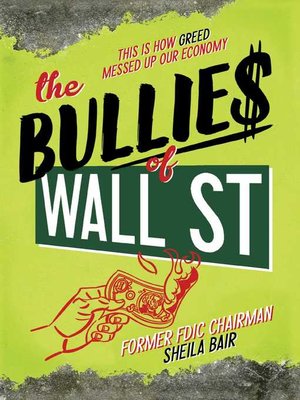
Sign up to save your library
With an OverDrive account, you can save your favorite libraries for at-a-glance information about availability. Find out more about OverDrive accounts.
Find this title in Libby, the library reading app by OverDrive.



Search for a digital library with this title
Title found at these libraries:
| Library Name | Distance |
|---|---|
| Loading... |
Can knowing how a financial crisis happened keep it from happening again? Sheila Bair, the former chairman of the FDIC, explains how the Great Recession impacted families on a personal level in this easy-to-understand book "that puts a human face on the economic crisis" (School Library Journal).
In 2008, America went through a terrible financial crisis, and we are still suffering the consequences. Families lost their homes and struggled to pay for food and medicine. Businesses didn't have money to buy equipment or hire and pay workers. Millions of people lost their jobs and their life savings. More than 100,000 businesses went bankrupt.
As the former head of the Federal Deposit Insurance Corporation, Sheila Bair worked to protect families during the crisis and keep their bank deposits safe. In The Bullies of Wall Street, she describes the many ways in which a broken system led families into financial trouble, and also explains the decisions being made at the time by the most powerful people in the country—from CEOs of multinational banks, to heads of government regulatory committees—that led to the recession.
In 2008, America went through a terrible financial crisis, and we are still suffering the consequences. Families lost their homes and struggled to pay for food and medicine. Businesses didn't have money to buy equipment or hire and pay workers. Millions of people lost their jobs and their life savings. More than 100,000 businesses went bankrupt.
As the former head of the Federal Deposit Insurance Corporation, Sheila Bair worked to protect families during the crisis and keep their bank deposits safe. In The Bullies of Wall Street, she describes the many ways in which a broken system led families into financial trouble, and also explains the decisions being made at the time by the most powerful people in the country—from CEOs of multinational banks, to heads of government regulatory committees—that led to the recession.







